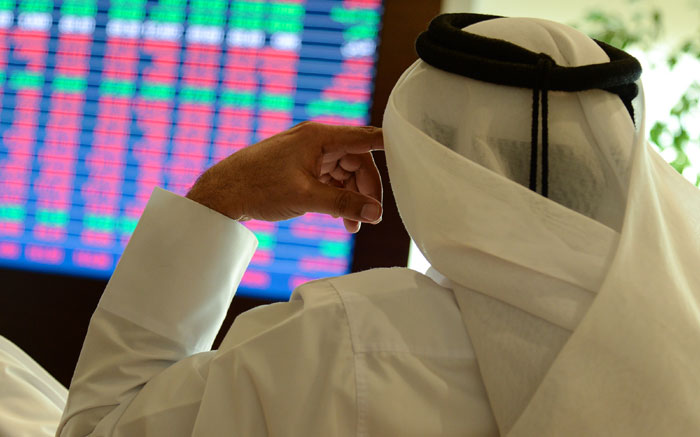By Santhosh V. Perumal
Business Reporter
The Qatar Stock Exchange on Thursday witnessed a 23-point decline to remain under the 10,900 mark mainly owing to foreign institutions’ increased net profit-booking.
Selling pressure, especially in the real estate and consumer goods sectors, led the 20-stock Qatar Index to slide 0.21% to 10,830.33 points, apparently reflecting nervousness in view of the need for tough fiscal measures amid lower oil prices and expectations on a US interest rate hike in December.
Weak buying sentiments among the local and Gulf individual investors were also instrumental for an overall bearish run on the market, which is down 11.85% year-to-date, making it the worst performer among the Gulf peers.
Islamic stocks were seen the hardest hit on the bourse, where trading was largely skewed towards the banking, telecom, industrials and realty sectors, which together constituted more than 82% of the volume.
Market capitalisation was down 0.01%, or QR8mn, to QR570.36bn despite large, mid and small cap equities gaining 0.37%, 0.05% and 0.03% respectively. Small caps were down 0.05%.
The Total Return Index fell 0.21% to 16,834.19 points, the All Share Index by 0.13% to 2,892.16 points and the Al Rayan Islamic Index by 1.05% to 4,068.26 points.
Realty stocks plummeted 2.08%, followed by consumer goods (0.97%), industrials (0.18%) and transport (0.12%); whereas insurance gained 1.82%, banks and financial services (0.56%) and telecom (0.23%).
Major losers included Ezdan, Barwa, Mazaya Qatar, Vodafone Qatar, Industries Qatar, Aamal Company, Mesaieed Petrochemical Holding and Dlala; even as QNB, Ooredoo, Qatar Electricity and Water, Qatari German Company for Medical Devices, Gulf International Services, Doha Insurance, Qatar General and Reinsurance and Qatar Insurance bucked the trend.
Non-Qatari institutions’ net selling surged to QR74.86mn compared to QR43.46mn the previous day.
Local retail investors’ net buying weakened considerably to QR1.01mn against QR49.97mn on Wednesday.
Non-Qatari individual investors’ net profit-booking shrank to QR5.07mn compared to QR14.5mn on November 11.
GCC (Gulf Cooperation Council) institutions’ net selling rose to QR13.19mn against QR10.31mn the previous day.
However, domestic institutions turned net buyers to the tune of QR82.85mn compared with net sellers of QR5.17mn on Wednesday.
GCC individual investors were also net buyers to the extent of QR4.08mn against net profit-takers of QR1.56mn on November 11.
Total trade volume was up 2% to 6.12mn shares and value by 4% to QR289.59mn, while deals were down 1% to 4,066.
The insurance sector’s trade volume more than quadrupled to 0.2mn equities and value also more than quadrupled to QR14.68mn on almost-doubled-transactions to 184.
The consumer goods sector saw a 72% surge in trade volume to 0.5mn stocks, but on a 45% decline in value to QR16.51mn and 7% in deals to 283.
The real estate sector’s trade volume expanded 38% to 1.13mn shares, value by 18% to QR25.29mn and transactions by 2% to 384.
There was a 13% jump in the telecom sector’s trade volume to 1.37mn equities, 11% in value to QR25.86mn and 4% in deals to 680.
The industrials sector’s trade volume grew 5% to 1.15mn stocks and value by 1% to QR75.71mn but transactions shrank 25% to 874.
However, the market witnessed a 49% plunge in the transport sector’s trade volume to 0.38mn shares, 51% in value to QR9.46mn and 24% in deals to 260.
The banks and financial services sector’s trade volume tanked 23% to 1.39mn equities, while value soared 14% to QR122.08mn and transactions by 17% to 1,401.
In the debt market, there was no trading of treasury bills and government bonds.

